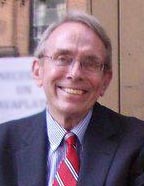Peter’s Take is a weekly opinion column. The views and opinions expressed in this column are those of the author and do not necessarily reflect the views of ARLnow.com.
 Last Saturday, there was a commemoration of the 50th anniversary of the March on Washington for Jobs and Freedom. I participated in that march on August 28, 1963.
Last Saturday, there was a commemoration of the 50th anniversary of the March on Washington for Jobs and Freedom. I participated in that march on August 28, 1963.
Here are a few personal reflections about what it felt like to march 50 years ago and what the march means today.
In the summer of 1963, I was an intern at the Pentagon in Arlington, drafting issue papers on foreign policy. I felt lucky to have gotten that internship. I read the publicity about the march, and instinctively wanted to join it. I understood only vaguely what the goals of the march were.
The media were filled with warnings about the possibility of riots by the marchers. I didn’t really understand why. I had no experience enabling me to measure the risk—so I just disregarded the warnings.
On the Mall, the size and racial diversity of the crowd were overwhelming. Everything was black and white: the people, the signs, the speakers, the messages. With the “wisdom” of a 21-year old intern, I saw no grays anywhere.
Everyone seemed to be getting along very well with everyone else. If this huge, diverse crowd of people could get along so well, there had to be hope for our country.
From a 2013 perspective, what things did the march help to inspire?
In Virginia:
- “massive resistance” to school desegregation has ended
- interracial marriage is no longer illegal
- public accommodations are open to all regardless of race
- the Democratic Party’s “Byrd machine” suffered a slow, well-deserved death
The tremendous progress in all of these areas deserves to be celebrated.
And yet,
- unemployment rates in the black community remain significantly higher than for whites
- educational achievement by black students on many performance measures remains significantly below educational achievement by white students
- new laws have been enacted making it disproportionately harder for members of poor and minority communities to vote
- disparities in personal income are much higher now than in 1963
After 50 years, I see more shades of gray.
But, I’m proud that I still see some issues as black or white.
Peter Rousselot is a former member of the Central Committee of the Democratic Party of Virginia and former chair of the Arlington County Democratic Committee.







